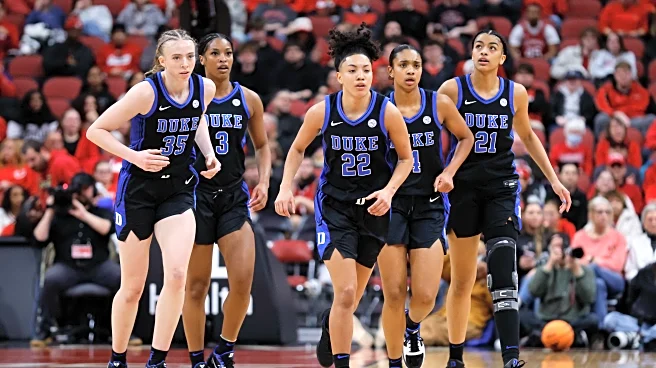What's Happening?
Penske Logistics is navigating the challenges of the post-COVID-19 pandemic era by emphasizing strategic partnerships with shippers and carriers. According to the latest Annual Third-Party Logistics Study
conducted by NTT Data and Penn State University, both shippers and carriers are increasingly focusing on mutually beneficial partnerships to combat market volatility. The study highlights that shippers are demanding more visibility, transparency, and on-time deliveries from their carrier partners, driving logistics performance. Shippers are choosing 3PL providers based on their ability to offer continuous improvement, value creation, and the use of technology to enhance efficiency and insight. The report indicates that 88% of shippers believe their 3PL providers are meeting their needs and challenges, a significant increase from 69% last year.
Why It's Important?
The emphasis on strategic partnerships in the logistics sector is crucial as it reflects a shift from transactional to strategic relationships. This change is driven by the need for adaptability and mutual value creation in a volatile market. Shippers are increasingly expecting 3PLs to take on more risks and adapt to changing market conditions, which can minimize costs and enhance operational efficiency. The use of technology by 3PLs to provide high levels of visibility and data-driven insights is also becoming a key factor in these partnerships. This trend is significant for the logistics industry as it highlights the growing importance of collaboration and technological integration in meeting the evolving demands of shippers.
What's Next?
The logistics industry is likely to see further integration of technology to enhance visibility and operational efficiency. As shippers continue to demand more from their 3PL providers, these partnerships may evolve to include more advanced technological solutions such as predictive analytics and asset utilization improvements. The focus on strategic partnerships may also lead to increased collaboration and trust between shippers and 3PLs, potentially setting new standards for logistics performance. Stakeholders in the industry may need to adapt to these changes by investing in technology and fostering stronger relationships to remain competitive.
Beyond the Headlines
The shift towards strategic partnerships in logistics may have broader implications for the industry, including potential changes in regulatory policies and tariffs that could further impact freight recovery timelines. The emphasis on technology and data-driven insights could also lead to ethical considerations regarding data privacy and security. Additionally, the focus on mutual value creation and adaptability may influence cultural shifts within organizations, promoting a more collaborative and innovative approach to logistics management.











